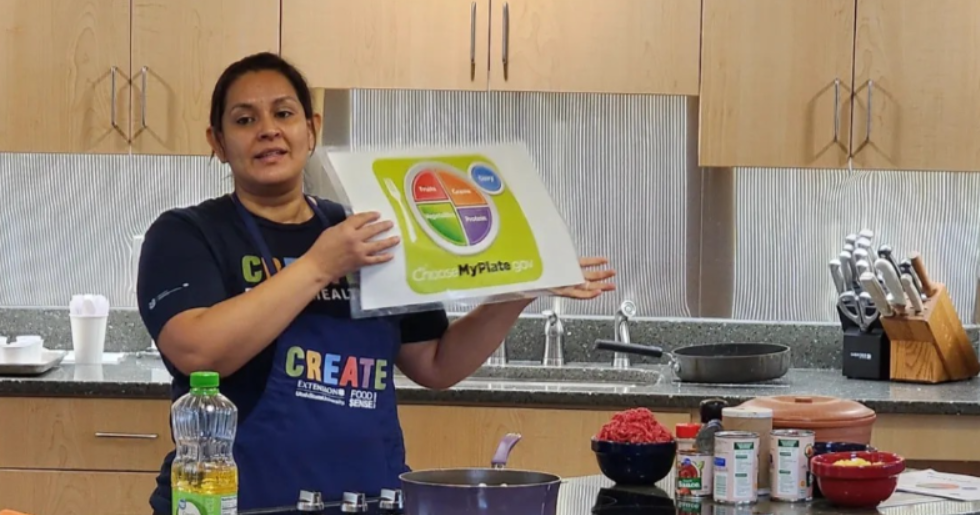A new multi-state report showcases the wide-reaching impact of the Supplemental Nutrition Assistance Program – Education (SNAP-Ed) in addressing food insecurity and chronic disease prevention across the country. The 2024 Multi-State Outcome Report on the Nutrition Education and Obesity Prevention Grant Program highlights how 23 states are working with community partners to advance health through nutrition education, culturally relevant interventions, and change driven by communities.
Funded by the USDA Food and Nutrition Service, SNAP-Ed combines education, social marketing, and communities to equip Americans with the tools they need to make healthy choices and sustain long-term well-being.
The cross-regional SNAP-Ed report was first developed through a collaborative effort among SNAP-Ed implementing agencies in the USDA Food and Nutrition Services Mountain Plains region in 2017. It has since grown to include states from all seven regions. It is currently coordinated by Utah State University Extension.
Highlights from the report include:
- Over 1.2 million individuals have been reached through direct education.
- An estimated 10.6 million individuals have been reached through nutrition and physical activity community supports that make healthy choices easier and more accessible.
- Over 261.3 million social marketing impressions.
- 100% of states are engaged in agriculture-supportive programs through gardens or farmers markets.
- Schools, including early care and education facilities, and food assistance sites were the top locations for SNAP-Ed programming.
Heidi LeBlanc, director of USU Extension Create Better Health (Utah’s SNAP-Ed Program) and co-chair of the Association of SNAP Nutrition Education Administrators Leadership Team, said the report validates the essential role of SNAP-Ed in addressing food insecurity and chronic disease prevention.
“By combining nutrition education, social marketing, and health-promoting changes in communities, SNAP-Ed helps equip Americans with tools that support lasting health improvements,” LeBlanc said. “We have heard countless testimonials from people saying the program has been life-changing for them.”
A few testimonials include:
A youth SNAP-Ed participant in Juab County said, “I was able to make dinner for my family last night! I was having so much fun, and they said it taste good too!”
An adult in Millard County said, “…Thank you for teaching me to eat healthy. I went to the doctor and my A1C levels dropped from 7.1 to 6.1.”
An adult participant in Utah County said, “Since I started taking the SNAP-Ed classes, I changed my diet to a healthier one. I exercise more and thanks to this, I have lost weight.”
*****
About SNAP-Ed:
SNAP-Ed is the nutrition education and obesity prevention arm of the Supplemental Nutrition Assistance Program (SNAP). It supports evidence-based interventions that empower individuals and families with limited incomes to make healthier food and lifestyle choices. For further information, contact LeBlanc at heidi.leblanc@usu.edu,

